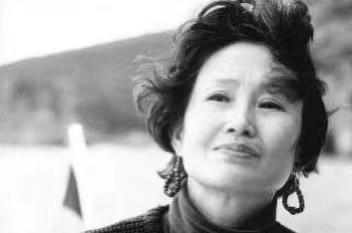According to the news of the "China Writers Network" sponsored by the China Writers Association on February 7, Zhang Jie, a famous contemporary female writer, died in the United States on January 21 due to illness. Nandu reporter learned that Zhang Jie, who won the Mao Dun Literature Award twice in 1985 and 2005, is a representative writer of Chinese literature in the new era and a figure who cannot avoid writing in contemporary Chinese women. She has a long relationship with Guangzhou, wrote many essays here, and was the winner of the first "Huacheng Literature Award" in Guangzhou.

Zhang Jie.
Originally from Fushun, Liaoning Province, Zhang Jie was born in Beijing in 1937 and graduated from Chinese University. In 1978, she began to publish literary works, the short story "The Child from the Forest" was included in a variety of anthologies as soon as it came out, winning the 1978 National Outstanding Short Story Award; the short story "Love, Cannot Be Forgotten" published in 1979 went deep into the hearts of contemporary intellectual women and caused a wide impact in society. In 1980, Zhang Jie was transferred to Beijing Film Studio as a screenwriter, and the following year he was transferred to the Beijing Municipal Federation of Literature and Literature and became a professional writer.
In her creative career, Zhang Jie has won many important awards for every masterpiece, including two Mao Dun Literature Awards. The novel "Heavy Wings", which reflects the reform of the industrial economy, won the second Mao Dun Literature Award in 1985, and in 2005, she won the Sixth Mao Dun Literature Award for her 12-year-long creation and more than 800,000 words of "No Words", becoming the first writer to win the award twice. In addition to a number of famous novels, Zhang Jie has also written essays, essays, biographies and other works, among which the long essay "The Man Who Hurt Me In the World The Most" has been adapted into a film of the same name, starring Si Qinggaowa and Huang Suying, and won the Outstanding Chinese Feature Film Award at the 6th China Changchun Film Festival and the 9th China Film Huabiao Award for Outstanding Feature Film. Zhang Jie's works have also been translated into English, French, German, Danish, Norwegian, Swedish, Finnish, Dutch, Italian, Spanish, Portuguese, Turkish, Romanian and other languages, and won the Italian Knight Medal and German, Austrian, Dutch and other multinational literary awards.
In 2006, Zhang Jie, who was a rare age, began to study painting. In the autumn of 2014, she held the "Zhang Jie Oil Painting Exhibition" in Beijing for the first time, and unexpectedly made a "farewell speech" at the opening ceremony of the exhibition. She said: "I now know that 'forever' does not exist..." In front of many literary friends, Zhang Jie announced her will: no obituary after death, no farewell to the body, no memorial service, and please ask friends to "not publish commemorative articles."
On February 7, the China Writers Network posted that after Zhang Jie's death, Tie Ning, chairman of the China Federation of Literary and Art Circles and chairman of the China Writers Association, and Zhang Hongsen, secretary of the party group and vice chairman of the China Writers Association, respectively expressed deep condolences for Zhang Jie's death and expressed deep condolences to Zhang Jie's relatives. In its condolence telegram, the Chinese Writers Association expressed its high respect for Zhang Jie's outstanding contributions to contemporary Chinese literature. This "obituary that is not an obituary" ended with a sentence: "Love cannot be forgotten, and Zhang Jie's works and demeanor have long existed in the hearts of her readers." ”
Written by: Nandu reporter Hou Jingjing